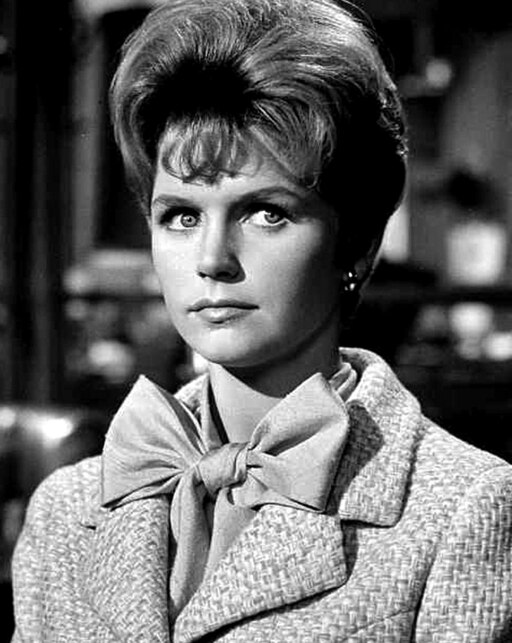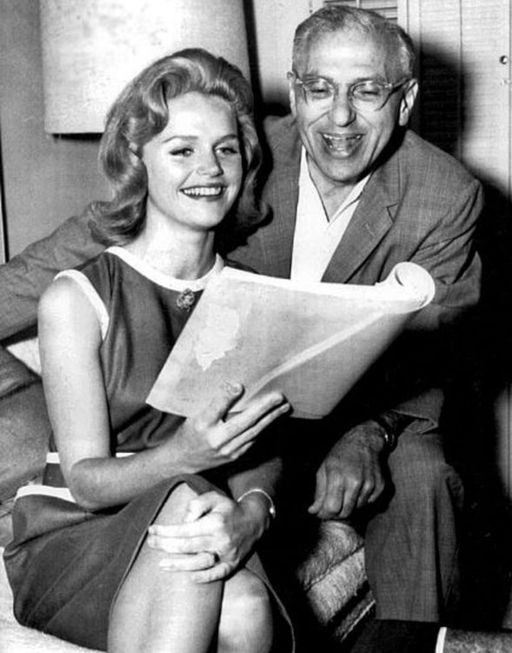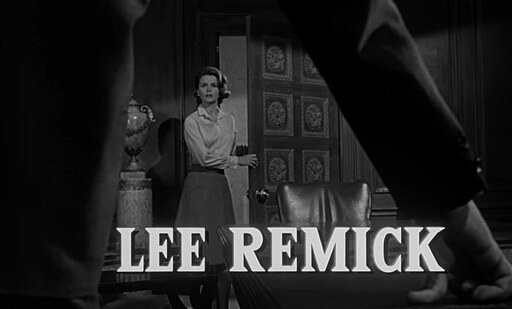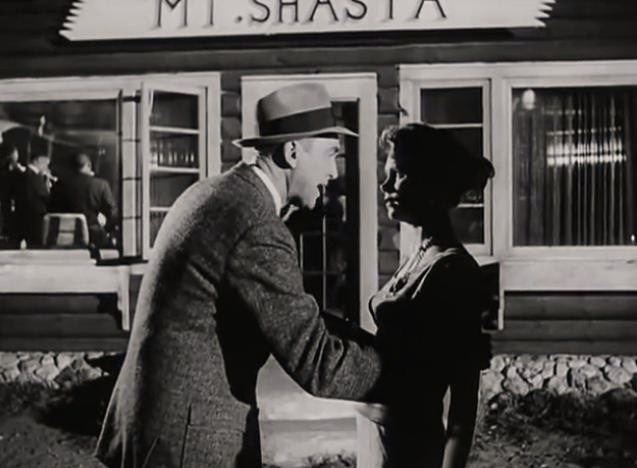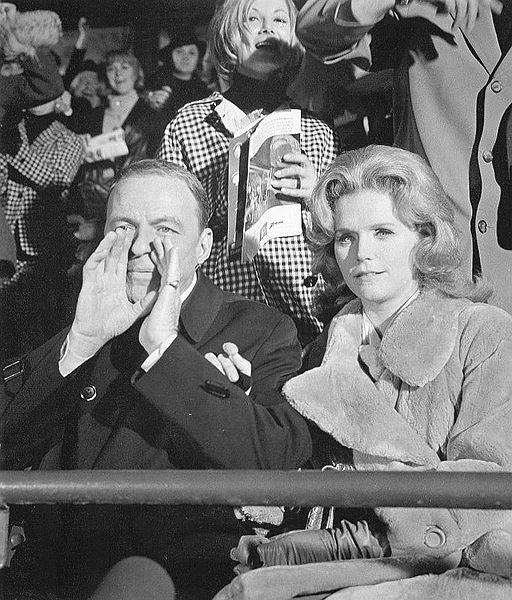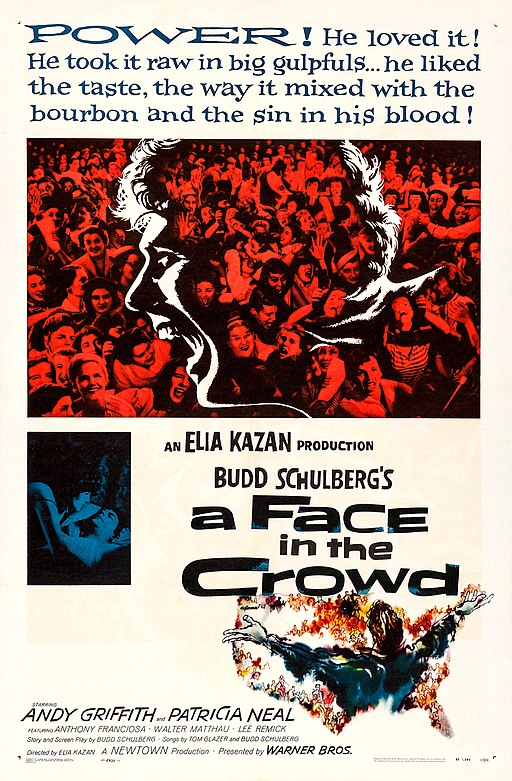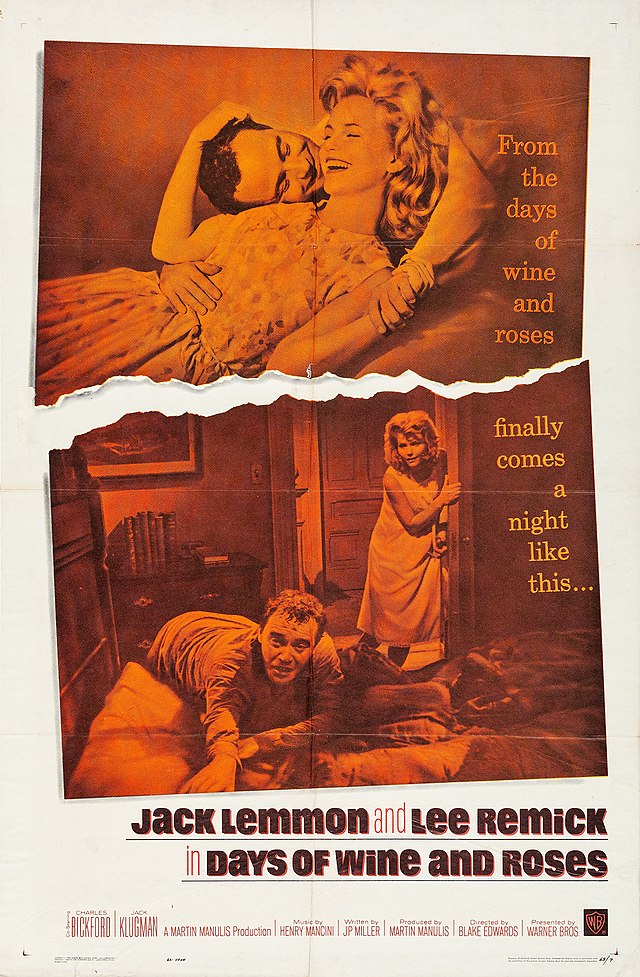Lee Remick
back| Full Name | Lee Ann Remick |
| Stage Name | Lee Remick |
| Born | December 14, 1935 |
| Birthplace | Quincy, Massachusetts, U.S. |
| Died | July 2, 1991 |
| Buried | West Cornwall Cemetery, Cornwall, Connecticut, U.S. |
| Married to | Bill Colleran (1957–1968), with whom she had two children - Kip Gowans (1970 until her death in 1991) |
| Children | Katherine Lee Colleran - Matthew Remick Colleran |
| Notable films | Anatomy of a Murder (1959) - Days of Wine and Roses (1962) - The Omen (1976) - A Face in the Crowd (1957) |
Lee Remick
The Versatile Talented Beauty
Lee Remick's contribution to the arts extended beyond these roles, with performances on Broadway and numerous television films and series, earning her critical acclaim and several awards and nominations throughout her career.
Her legacy is that of a talented and versatile actress who brought depth and realism to every role she played.
Related
Lee Remick (1935 – 1991)
Biography and Career Overview
Lee Remick was a radiant and versatile American actress whose performances graced the stage, television, and the silver screen with a depth and presence that captivated audiences worldwide. Born Lee Ann Remick on December 14, 1935, in Quincy, Massachusetts, she was the daughter of Margaret Patricia, an actress, and Francis Edwin Remick, who owned a department store. This blend of commercial pragmatism and artistic sensibility in her family background perhaps contributed to both her grounded personality and her magnetic screen presence.
Early Years and Education
From an early age, Remick showed an inclination towards the performing arts, inspired by her mother's acting career. She pursued her passion at the prestigious Barnard College and the Actors Studio, where she honed her craft under the tutelage of renowned acting coaches. Her education laid the foundation for a career that would span across dramatic and musical theatre, television, and film.
Path to Success
Remick's journey to stardom began on the stage, where her talent quickly caught the attention of critics and audiences alike. Her Broadway debut in "Be Your Age" (1953) marked the start of a prolific acting career. However, it was her transition to the big screen that catapulted her into the limelight. Her role in "A Face in the Crowd" (1957) showcased her ability to hold her own alongside established stars, leading to more significant roles in films such as "Anatomy of a Murder" (1959), where she delivered a captivating performance that earned widespread acclaim.
Her portrayal of Kirsten Arnesen Clay in "Days of Wine and Roses" (1962) is particularly noteworthy. Remick's depiction of a woman struggling with alcoholism alongside her husband (played by Jack Lemmon) was both powerful and poignant, earning her an Academy Award nomination for Best Actress.
Personal Life and Passions
Remick's personal life was as full and vibrant as her career. She was married twice, first to director Bill Colleran, with whom she had two children, Katherine and Matthew. The couple divorced in 1968, and in 1970, she married British producer Kip Gowans. Remick's passions extended beyond acting; she was an ardent supporter of the arts and an advocate for various charitable causes.
Death and Legacy
Tragically, Lee Remick's life and career were cut short when she died on July 2, 1991, at the age of 55. After a courageous battle with kidney and liver cancer, she passed away at her home in Los Angeles. Her death was a significant loss to the acting community and her fans worldwide. Remick is buried in West Cornwall Cemetery, Cornwall, Connecticut, leaving behind a legacy that continues to inspire.
The Life Story of Lee Remick:
Analysis of the Acting Style of Lee Remick:
Lee Remick's acting style was distinguished by her ability to convey complex emotions with subtlety and depth, making her one of the most nuanced and versatile actresses of her time. Her performances were characterized by a remarkable blend of intensity and vulnerability, enabling her to inhabit a wide range of characters across various genres. Here's a deeper look into the elements that defined her acting style:
Emotional Authenticity
Remick had a unique talent for portraying emotional authenticity on screen. Whether she was playing a troubled housewife struggling with addiction in "Days of Wine and Roses" or a woman caught in a web of terror in "Experiment in Terror," she brought a genuine sense of emotional truth to her roles. Her ability to express the inner turmoil of her characters without resorting to over-dramatization allowed audiences to connect with her performances on a deeply personal level.
Subtlety and Nuance
One of the hallmarks of Remick's acting was her use of subtlety and nuance. She could convey a character's entire backstory with a single look or a subtle gesture, demonstrating an understanding of her roles that went beyond the dialogue. This understated approach made her performances more compelling and relatable, as it reflected the complexity of real human behavior.
Versatility
Remick's career was marked by an impressive range of roles, showcasing her versatility as an actress. From psychological thrillers to romantic dramas and even horror films, she managed to adapt her style to fit the demands of each genre effectively. Her ability to shift from the intensity of a courtroom drama in "Anatomy of a Murder" to the eerie suspense of "The Omen" without losing her authenticity is a testament to her skill and adaptability.
Physicality
Remick's physical presence on screen was another crucial aspect of her acting style. She used her body language and movements to add another layer of meaning to her characters. Whether through the way she carried herself or through expressions that conveyed her characters' emotions and thoughts, Remick's physicality was always purposeful and informed by the psychology of her roles.
Emotional Resonance
Finally, the emotional resonance of Remick's performances left lasting impressions on audiences. She had the ability to draw viewers into the emotional landscape of her characters, making their joys, sorrows, and fears palpable. This emotional connection was not just a testament to her acting skill but also to her profound empathy for the characters she portrayed.
Lee Remick's acting style was a blend of emotional depth, subtlety, versatility, thoughtful physicality, and an innate ability to connect with the audience. Her legacy in the film industry is not just the roles she played but the way she played them—with a sincerity and authenticity that continue to resonate with viewers to this day.
Memorable Lines from Lee Remick:
From "Days of Wine and Roses" (1962)
- Kirsten Arnesen Clay (Lee Remick): "I think I'm going to be sick."
This line, simple as it may seem, is pivotal in the movie, capturing the moment of realization and despair that comes with addiction, a theme central to the film.
From "Anatomy of a Murder" (1959)
- Laura Manion (Lee Remick): "I'm not going to pretend I'm the first woman who ever went to bed with a man she didn't love, and I'm not going to be the last."
In this courtroom drama, Remick's character challenges societal norms and expectations with her forthrightness, highlighting her complex character.
From "The Omen" (1976)
- Katherine Thorn (Lee Remick): "What could be wrong with our child, Robert? We're beautiful people, aren't we?"
This line from "The Omen" reflects the denial and eventual horror as her character realizes the truth about her son, adding to the chilling atmosphere of the film.
Significance of her Role in “A Face in the Crowd”:
Lee Remick's performance in "A Face in the Crowd" (1957) marked a significant milestone in her career, serving as her cinematic debut and establishing her as a talented actress with a promising future in Hollywood. Directed by Elia Kazan and written by Budd Schulberg, the film is a powerful critique of media manipulation, demagoguery, and the cult of personality, themes that remain relevant today.
Career Significance
Breakthrough Role: Remick's role as Betty Lou Fleckum, the baton twirler who catches the eye of the film's charismatic but morally corrupt protagonist, Lonesome Rhodes (played by Andy Griffith), was relatively small yet impactful. Her performance caught the attention of both audiences and critics, showcasing her ability to convey depth and nuance even in limited screen time.
Exposure to Acclaimed Talent: Working on "A Face in the Crowd" allowed Remick to collaborate with some of the industry's most respected figures, including Kazan and Griffith. This exposure not only lent her credibility as a newcomer but also provided her with invaluable experience and learning opportunities early in her career.
Transition to Leading Roles: Her convincing performance in this film helped Remick transition from television and stage to more substantial roles in major motion pictures. It demonstrated her versatility and screen presence, leading to leading roles in films such as "Anatomy of a Murder" (1959) and "Days of Wine and Roses" (1962), where her talents were further showcased and celebrated.
Establishment as a Serious Actress: The film's critical acclaim and enduring legacy in American cinema helped to establish Remick as a serious actress capable of handling complex roles in significant productions. It laid the groundwork for her to become one of the most respected actresses of her generation, known for her depth, intensity, and ability to portray a wide range of characters.
Legacy of the Performance
Lee Remick's debut in "A Face in the Crowd" is often cited as the beginning of a distinguished career that spanned several decades and included a wide variety of roles across film, television, and stage. Her performance in the film is emblematic of her talent for bringing authenticity and emotional depth to her characters, qualities that would define her career. The film itself has grown in esteem over the years, recognized not only for its critical commentary on media and politics but also for its introduction of Remick to the cinematic world, where she would leave an indelible mark.
Awards and Recognition:
Academy Awards (Oscars)
- Nominated: Best Actress in a Leading Role for "Days of Wine and Roses" (1963)
Golden Globe Awards
- Won: Most Promising Newcomer - Female for "A Face in the Crowd" (1958)
- Nominated: Best Actress in a Motion Picture – Drama for "Days of Wine and Roses" (1963)
- Nominated: Best Actress in a Motion Picture – Drama for "The Omen" (1977)
- Nominated: Best Actress in a Miniseries or Television Film for "Mistral's Daughter" (1985)
- Nominated: Best Actress in a Miniseries or Television Film for "Jennie: Lady Randolph Churchill" (1976)
Emmy Awards
- Nominated: Outstanding Lead Actress in a Limited Series or a Special for "The Blue Knight" (1976)
- Nominated: Outstanding Lead Actress in a Miniseries or a Special for "Jennie: Lady Randolph Churchill" (1975)
- Nominated: Outstanding Lead Actress in a Miniseries or a Special for "Haywire" (1980)
- Nominated: Outstanding Lead Actress in a Miniseries or a Special for "The Women's Room" (1980)
BAFTA Awards
- Nominated: Best Foreign Actress for "Days of Wine and Roses" (1963)
Other Honors
Beyond these major awards, Lee Remick was also recognized by various film festivals and critics' associations over the years, reflecting her respect within the industry and her impact on audiences and peers alike.
Notable Movies Starring Lee Remick:
1957
- "A Face in the Crowd": A young woman (Remick) becomes involved with a drifter who rises to fame through the power of television, becoming a malevolent influencer in the process.
1959
- "Anatomy of a Murder": Remick plays Laura Manion, the wife of an army lieutenant accused of murder. The film follows the ensuing courtroom battle, highlighting her complex character amidst legal and ethical ambiguities.
1960
- "Wild River": Set during the Great Depression, Remick stars as Carol Garth Baldwin, a woman who falls in love with an agent from the Tennessee Valley Authority sent to purchase her family's land for a dam project.
1962
- "Experiment in Terror": As bank teller Kelly Sherwood, Remick is terrorized by a criminal who threatens her and her sister's life unless she helps him steal a large sum of money.
- "Days of Wine and Roses": In a career-defining role, Remick plays Kirsten Arnesen Clay, a woman who, along with her husband, struggles with alcoholism, depicting the devastating effects of addiction on a family.
1963
- "The Running Man": Remick portrays Stella, the wife of a man who fakes his own death to claim insurance money, leading to a suspenseful cat-and-mouse game in Spain.
1965
- "Baby the Rain Must Fall": As Georgette Thomas, Remick is a loyal wife to an aspiring singer with a troubled past, struggling to build a life together in a small Texas town.
1966
- "The Hallelujah Trail": A comedic western in which Remick plays Cora Templeton Massingale, a temperance leader who battles with a cavalry officer over a shipment of whiskey.
1968
- "No Way to Treat a Lady": Remick stars as Kate Palmer, a woman who becomes the object of affection for a serial killer in this dark comedy thriller.
- "The Detective": As Karen Wagner, Remick is the troubled wife of a police detective (Frank Sinatra) investigating a complex murder case in New York City.
1970
- "Loot": In this British comedy, Remick plays Fay McMahon, involved in the bizarre antics following a bank robbery.
1974
- "A Delicate Balance": Remick portrays Julia, a woman returning to her parents' home to find it filled with unexpected guests and simmering tensions, in this adaptation of Edward Albee's play.
1976
- "The Omen": As Katherine Thorn, Remick is the mother of a young boy who may be the Antichrist, in this iconic horror film exploring themes of prophecy, power, and evil.
1977
- "Telefon": Starring as Barbara, Remick becomes entangled in a plot involving Soviet sleeper agents activated by a rogue KGB operative in the United States.

